#prussia 1813
Explore tagged Tumblr posts
Text
"Me too" in January 1813
Except that this time, it was after Murat had left the remnants of the Grande Armée on 16 January that apparently everybody lined up in front of Eugène's headquarters and demanded "Going home? Me too, please, and asap."
And to be fair, with this they merely preempted Napoleon's orders. Since at least 9 January Napoleon had written to Berthier (directly and through Clarke) repeatedly to send to France everybody who was sick or wounded and also all superfluous marshals, generals and staff officers still with the army, while keeping only those who were truly necessary for the small amount of soldiers still under arms.
Except that Berthier had fallen gravely ill at the time, and with all the disorder during the hasty retreat that preceded Murat's departure, it's quite possible that Napoleon's orders were never received, or at least not read.
It was only after some calm had returned, that the new (very reluctant) commander of the (very reduced) Grande Armée managed to file through all those probably unopened letters of the last weeks. On 23 January, Eugène wrote to Napoleon:
In accordance with Your Majesty's orders, I have instructed a large number of wounded, sick or tired generals to make themselves and their staffs available to the Minister of War. I gave the same authorisation to Marshals Ney, Macdonald and Mortier. I have kept in the army only the Marshals Prince d'Eckmühl [Davout], Duke of Bellune [Victor], Duke of Istrie [Bessières - of course he would stay to look after the kid] and Saint-Cyr. The Prince Major-General [Berthier] is a little better today, but his condition still gives rise to the same fears.
This apparently led to a flurry of activity and was reflected in various newspaper reports:
Le Moniteur Westphalien, 27 January 1813
Berlin, 23 January: His Excellency the Imperial Marshal Duke of Taranto and His Excellency the Imperial Marshal Duke of Elchingen as well as about 2o Imperial French generals of various ranks, and among them adjutants of His Majesty the King of Naples and the Prince of Neuchatel, arrived here yesterday and the day before yesterday from the army and in some cases passed through here for their further destination.
Berlinische Nachrichten von Staats- und gelehrten Sachen, 28 January 1813:
His Excellency the Imperial French Imperial Marshal Duke of Treviſo (Mortier) arrived here the day before yesterday; His Excellency the Imperial French Imperial Marshal Duke of Elchingen (Ney) left here for Paris. A large number of Imperial French generals and senior staff officers are constantly returning from the army through here to Paris.
Bayreuther Zeitung, 28 January 1813:
Berlin, 21 January. Arrived here from the Oder on the 19th and 20th: Their Excellencies the Imperial Marshals, Dukes of Elchingen (Ney) and of Tarentum (Macdonald); the Imperial French Division and Brigade Generals Pujol, Defrance, Monnet, Bouvier, Chonard, Benard, Poultier, Dunier, Faure, Corbineau, Roussel, Grouchy, together with several colonels and officers of all grades.
Augsburgische Ordinari-Postzeitung, 3 February 1813:
Leipzig, 30 January. On the 28th of this month, Their Excellencies the Imperial French Imperial Marshals, the Dukes of Treviso (Mortier), of Elchingen (Ney), and of Abrantes (Junot), arrived here from the army and immediately continued their journey to France.
And so on, and so on. The funny part: At the same time - in order to hide what was going on, probably - somebody launched reports in the newspaper about a 40,000-strong army under Ney assembling in Posen. People reading those papers must have been quite confused.
#napoleon's marshals#joachim murat#michel ney#edouard mortier#louis nicolas davout#laurent de gouvion saint cyr#jean baptiste bessieres#claude-victor perrin#napoleon's family#eugene de beauharnais#jean andoche junot#napoleon's generals#napoleonic era#posen 1813#prussia 1813#louis alexandre berthier
13 notes
·
View notes
Text
Brief overview of the Battle of the Nations, otherwise known as the Battle of Leipzig, from Saxony’s perspective.


The Battle of the Nations was the largest battle in European history until World War I. Approximately 600,000 soldiers fought in Leipzig, Saxony in 1813 over the course of 4 days. Saxony was one of Napoleonic France’s allies. The coalitions punished Saxony, and all the other states which had been loyal to Napoleon. Their economy also suffered as a result of the French defeat because the coalitions used their victory to dismantle the Continental System, which had been good for the Saxon economy. The influx of British goods after the Battle of the Nations caused the British economy to flourish and Saxony’s economy to go through a period of hardship.
Pics: Journey through Leipzig, text by Bernd Weinkauf, photos by Tina and Horst Herzig
Additional source: Frederick III of Saxony
#battle of the nations#Leipzig#saxony#napoleonic era#napoleonic#19th century#first french empire#french empire#napoleon#napoleon bonaparte#france#history#battle of Leipzig#napoleonic wars#frev#french revolution#Germany#Prussia#1813#war of the 6th coalition#6th coalition#book#book pics#quotes#quote#ref#1800s
10 notes
·
View notes
Text




“Poor Blucher went mad for some time. He had shown off before some of our ladies, and got a fall from his horse and a blow on his head. This gave him all sorts of strange fancies. When I went to take leave of him, he positively told me he was pregnant! And what do you think he said he was pregnant of? – An elephant! And who do you think he said had produced it? – A French soldier!…”
- Recounted by Wellington to Stanhope, unknowingly exemplifying the dangers of directly translating your language to English without any context.
There’s a bit of a comedic story involving a Prussian diplomat during the War of the Third Coalition, Prussia being one of the main boss enemies during the early revolution was dragging its feet to declare war this time. Finally about to do it, the diplomat arrives just in time to hear the result of the battle of Austerlitz, and instead congratulates the French.
Queen Louise being one of Napoleon’s biggest haters on the continent is another funny little quirk about the Prussians.
As for their uniforms? The reference book really only covered the later army, but you can get a feel of the military practicality present. Overcoats, blankets, blues and grays, the Russo-German legion was dripped out a bit. The cavalry wasn’t too bad either.
From Blucher’s Army, 1813-15.
#napoleonic era#napoleonic wars#napoleon#prussian history#Prussia#germany#france#1800s#19th century#military art#uniform#soldier
139 notes
·
View notes
Text

“Esther Manuel was born in Hanau in 1785. In her early twenties, she married an artisan who changed his name from Müller to Grafemus, and they had two children. Her husband was a Christian, but there is no record of Esther’s baptism. Grafemus abandoned his family in 1808, and she heard rumors that he had joined the Russian army. Esther eventually traveled to Berlin to find some charity to support her, and because she was too poor to afford the postal service carriage, she dressed as a man to travel on horseback.
Once in Berlin she appealed for funds to the Jewish charities, but to no avail. In a patriotic gesture, after Queen Louise died in 1810, Esther changed her name to Louise. She was still very poor, frustrated in her continuing efforts to locate her husband. Eventually, sometime in the fall of 1812, using connections in the Jewish community, Louise went to the king’s son and daughter-in-law, Prince William and Princess Maria, and told them of her desire to join the army. Touched by her predicament and by her passion to fight, they purchased her a horse, a uniform, and a gun, and arranged for her to enter the army, dressed as a man! She was not the only female fighter motivated to take up arms for Prussia. Berliners just then were celebrating the heroism of Leonora Prochazka, a disguised woman soldier who had just died in battle, with popular songs and poetry.
By March 1813, in the first days of the War of Liberation, Louise Grafemus was already in battle, on her horse with rifle in hand, and although she was quickly wounded, she kept on fighting. One day that spring, during a battle, by some astonishing fortune, she chanced to meet her long-lost husband, who was indeed a soldier in the Russian army. In front of all the soldiers, she tore off her uniform and revealed her identity as a woman in disguise, causing a huge sensation. But fate took away what it had just delivered, and Herr Grafemus died the very next day.
Louise then left the army, and wandered to St. Petersburg, where she worked for a Russian nobleman. In time she returned to Berlin, where she spent her days writing appeals to the government to receive a pension as the widow of a fallen soldier. When the king did give her a tiny pension of two thalers a year she became a most modern publicity seeker, finding journalists to tell her story. The owner of a porcelain factory even ordered cups made bearing her image! Her family back in Hanau refused to help her, because they were angry that she had continuously neglected them as well as her two children. Eventually she married a German publisher in Russia and settled in Riga, where she died in 1852, at the age of 67.”
How Jews Became Germans: The History of Conversion and Assimilation in Berlin, Deborah Hertz
#esther manuel#louise grafemus#19th century#historyedit#history#women in history#women's history#napoleonic wars#germany#german history#warrior women#women warriors#female soldiers#historical figures
77 notes
·
View notes
Text
Do you guys know the story of the Iron Cross?
The Iron Cross was a reward for any soldier during the wars of liberation. Friedrich Wilhelm III donated this cross in 1813 and dated it back to Luises (his wife) birthday (10th of March). The very first one that was rewarded was posthum for Luise.
And do you know the iron cross Friedrich Wilhelm III is wearing in most of his portraits?

So I've gotten a new book about Prussia today, and in it, it says that after the wars with Napoleon, in 1815, he actually went back to the place Luise died (Hohenzieritz) and immured it into a bust of her. Which made me think that this was probably her iron cross, the one she got posthum, and he carried it with him until the wars were over.
(The book section in german under the cut.)

#its crying o'clock#they were really deeply in love with each other huh#friedrich wilhelm iii#frederick william iii#luise von mecklenburg strelitz#prussia#history#napoleonic era#napoleonic wars#queen louise of prussia
29 notes
·
View notes
Text

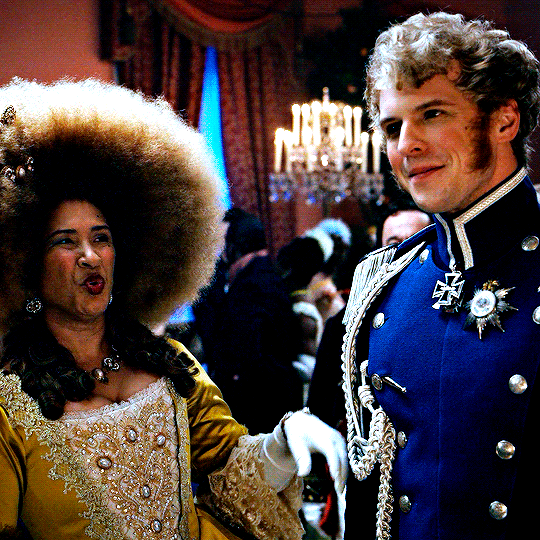



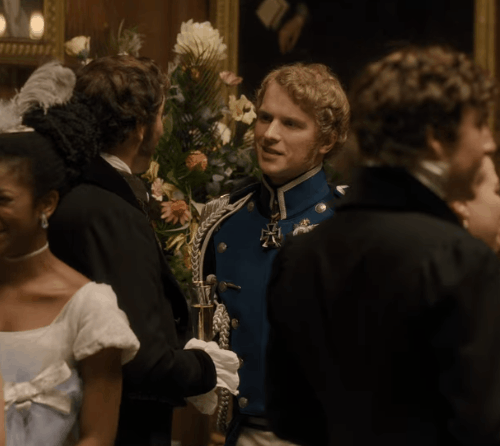




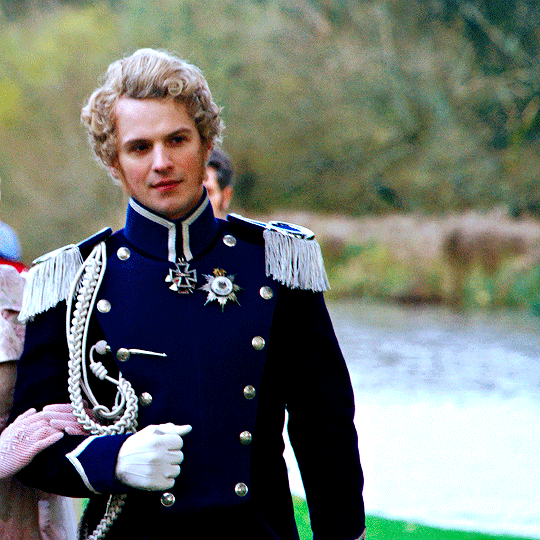

More Than Diamonds
Pairing: Prince Friedrich x Princess! Reader Description: Britain has gained themselves a new royalty nearing the debutante ball of 1813. Princess Amelia of Siam was sent as the new Ambassador of Siam. In Britain Princess Amelia was able to find her family, but will that be all? Tags: Tags: Slow burn, Coming of age, Time-Travel, Back to the past, Friends to Lovers, Royalties, Oblivious!FLxObvious!ML, Jealous! Friedrich, Slightly Possessive! Friedrich, Black cat gf, Golden retriever bf Timeline: S1&S2
Princess Amelia of Siam

"What romance? I have no time for such nonsense. I was merely attempting to forge a diplomatic relation between Siam and Prussia." - Amelia Chaiya Kanika, Princess of Siam
Prince Friedrich of Prussia

"Truthfully I am afraid. It felt like I'm the only one falling, while she stayed rooted... Unmoved. I want her, yet I do not want to lose what we have... To sacrifice what we have built." - Prince Friedrich of Prussia
Daphne Basset (nee. Bridgerton)
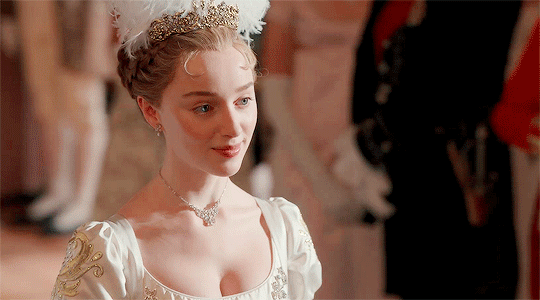
"Amelia is different... She is uptight and serious, but at the same time extremely intelligent. Unfortunately, romance is a foreign subject for her and I think... There is nobody more fitting to teach her than you." - Daphne Basset (nee. Bridgerton)
Anthony Bridgerton

"I would say out of all Bridgerton, we are the most similar... Which is why I hope for you to learn from my mistakes. Life is short Mel, you need to enjoy it while it lasts. Doing something you want is not selfish... Loving someone is not selfish." - Anthony Bridgerton
Benedict Bridgerton

"Say, Mel... What is your idea of fun? One which excludes activities that require you to think? Frankly I think you need it. Go outside, make friends, go to parties and promenades. Have fun. For sometime, forget your responsibilities and live a little." - Benedict Bridgerton
Colin Bridgerton
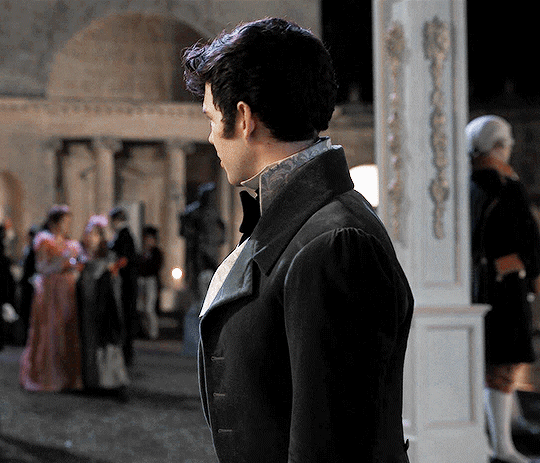
"I understand what you meant. How looking at this brought you peace, but Mel... Don't you think you too need to start listening to that advice?" - Colin Bridgerton
Charlotte of Mcklenburg-Strelitz
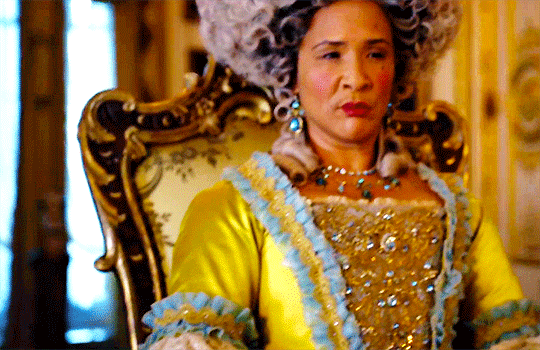
"I suppose for him a mere diamond won't do. She must be the epitome of perfection. An intelligent, beautiful and elegant woman. Who fits better for a prince than an actual princess?" - Queen Charlotte
Meet The Cast of 'More Than Diamonds' | More Than Diamonds Master List
#bridgerton#prince friedrich#lisa#lalisa#thailand#prussia#writing prompt#historical romance#history#romance#friedrich of prussia#freddie stroma#queen charlotte#daphne bridgerton#simon basset#anthony bridgerton#kate sharma#prince friedrich x reader#prince Friedrich x female reader#time travel#back to the past#prince frederick
306 notes
·
View notes
Photo

War of the Sixth Coalition
The War of the Sixth Coalition (1813-1814), known in Germany as the Wars of Liberation, was the penultimate conflict of the Napoleonic Wars (1803-1815). The Sixth Coalition, which included Russia, Austria, Prussia, the United Kingdom, Sweden, Portugal, Spain, and several German states, defeated the First French Empire and drove Napoleon into exile on the island of Elba.
Continue reading...
64 notes
·
View notes
Text











Royal Deaths 9th September.
1000 - Olaf Tryggvason, King Olaf I of Norway.
1087 - King William I of England (The Conqueror).
1398 - King James I of Cyprus.
1438 - Edward, King of Portugal.
1487 - Chenghua, Emperor of China.
1488 - Francis II, Duke of Brittany
1513 - James IV of Scotland.
1596 - Anna Jagiellon, Queen of Poland and Grand Duchess of Lithuania.
1730 - Charles FitzRoy, 2nd Duke of Cleveland, illegitimate son of King Charles II of United Kingdom.
1813 - George I, Prince of Waldeck and Pyrmont in Rhoden, Kingdom of Prussia.
1870 - Baroness Louise Lehzen, governess and companion to Queen Victoria.
#Death day#ktd#brf#british royal family#European royalty#william the conqueror#james iv#Baroness lehzen
8 notes
·
View notes
Text
A conversation between Napoleon and a deputy from Liberec (1813)
a.k.a. Napoleon’s opinion on Francis II
————————
N - Napoleon
D - the deputy
N: Then, does the emperor want the war just because of his sympathies towards Russia and Prussia?
D: We are not competent to answer this question.
N: No, he does not want it! Metternich! Metternich, Metternich (he exclaimed fiercely and bitterly)! HE wants the war. Your emperor was fooled!
D: If he was deceived, then we pity him greatly. He does not deserve it.
N: No, he’s good.
D: Truly good, Your Highness; he’s loyally loved by his people.
N: His own daughter reproached him because it was pointless. He’s the head of a great force directed against him.
D: It is sad, Your Highness, that a daughter must stand up against her own father.
N: But what do the Austrians want?
——————————-
They also call Berthier “the secretary” 😂
Just a bit of this very interesting dialogue.
Source: Napoleon and the heart of Europe, J. Polišenský
21 notes
·
View notes
Text
Much ado about miscommunication
read it on AO3 at https://archiveofourown.org/works/56962039 by Ravenworking “According to lady whistledown the prince of Prussia is expected to arrive at her majesties palace.” Lady Danbury informed the two ladies mother lady Mary. Kate the oldest of the two stretched over to try and read the pamphlet. “He might be a suiter for Edwina.” “Or Kate.” Mary interjected to which Kate scoffed,” My dear I do not understand why you would not consider yourself. Just because Edwina has debuted does not mean you will never find a husband.” Kate huffed “Is there any mention of a certain lord Mountanto?” she asked Lady Danbury. “Who is he, is he another possible suitor? You have not mentioned him before Kate” Edwina asked confused by her sister’s remark. Simon could not blame her. “She means lord Bridgerton, they have a sort of rivalry going on” he explained. Au inspired by Much Ado About Nothing where Kate has been a part of the season since she was 20 and the rest of her family arrive in the season of 1813. Words: 1395, Chapters: 1/?, Language: English Fandoms: Bridgerton (TV), Much Ado About Nothing - Shakespeare Rating: Teen And Up Audiences Warnings: No Archive Warnings Apply Categories: F/M Characters: Kate Sheffield | Kate Sharma, Anthony Bridgerton, Simon Basset, Daphne Bridgerton, Agatha Danbury, Eloise Bridgerton, Penelope Featherington, Edwina Sheffield | Edwina Sharma, Prince Friedrich (Bridgerton) Relationships: Anthony Bridgerton/Kate Sheffield | Kate Sharma, Simon Basset/Daphne Bridgerton, Prince Friedrich/Edwina Sheffield | Edwina Sharma, Simon Basset & Kate Sheffield | Kate Sharma, Edwina Sheffield | Edwina Sharma & Kate Sheffield | Kate Sharma, Daphne Bridgerton & Kate Sheffield | Kate Sharma Additional Tags: Alternate Universe - Canon Divergence, Season 1 & Season 2 Fusion, No beta we die like Edmund Bridgerton read it on AO3 at https://archiveofourown.org/works/56962039
7 notes
·
View notes
Text
Elie Baudus about Murat's departure in Posen, 1813
Once more Elie Baudus, former aide-de-camp to Marshal Bessières, in the second volume of his "Etudes sur Napoléon". (Another snippet is here.) This time it’s about Murat deserting leaving the army at Posen in January 1813. I was wondering how Bessières and his staff reacted to this news, especially as Elie makes it sound as if they were there at the time.
Headquarters left Elbing on 11 January to take up residence in Posen. When it reached that town, the King of Naples immediately announced that he was leaving the army on account of his health, either because he was really ill or because his indisposition was due solely to his anxiety about what might happen in his states, during his absence, in the political situation in which Europe was about to find itself. All that could be said to him about the impropriety of taking such a step without the emperor's consent could do nothing to change his mind; he handed over command to the viceroy and left for his capital.
What Elie possibly does not know or at least does not write: Murat had asked for permission to leave the army at least twice, admitting himself that the task was beyond him, and apparently had never even received a reply from Napoleon. And of course it would be interesting to know if Bessières was among those who tried to talk Murat out of his idea and to make him stay on his post, and how Murat reacted to these attempts.
Napoleon's departure had been applauded because the inflexible necessity which forced him to it was understood; [...]
That may be a bit of an exaggeration or generalisation. I understand there was quite some grumbling in the army (Oh, look, he’s pulling another Egyptian exit on us, etc.). Even Elie himself admits that the last remnants of military discipline broke down as soon as Napoleon was gone. There must have been a reason for that.
[…] Murat's departure, on the contrary, aroused strong indignation; this abandonment, in the situation in which the army found itself, was not noble, and it took no less than the great actions which he carried out a few months later at Dresden and Leipsick to weaken the irritation which this conduct had aroused against him in all ranks. Nothing can excuse such a mistake, for even if we consider it only from a political point of view it was enormous. If this prince feared for the preservation of his crown, should he not have considered that it was only within the French army that he could work effectively to consolidate it on his head? That was the key to the vault; if it was missing, it was obvious that all the stones of the edifice would crumble.
The talents and the firmness of character that Prince Eugène had recently displayed in this campaign had already won him the confidence and the attachment of the army; so there was more anger than regret at the news of the change in our general-in-chief. Marshal Bessières was happier than anyone else when it was announced that the emperor was definitively entrusting the viceroy with the power of which he had only been temporarily invested upon the departure of the king of Naples. What, for the Duke of Istria, was both the result of a long-standing attachment rooted in paternal feelings and deeply felt esteem, was dictated to the other chiefs by the latter motive. They all did their best to prove it to this young prince, and we will never forget the interesting spectacle offered by his salons in Posen in this respect. There was something touching about the marks of deference with which all these old glories of France surrounded him.
[Insert image of dozens of decorated army generals surrounding an 8-year-old: "You’ll get us out of this shit, right, little one?" - Eugène nodding very seriously: "Uh-huh."]
I would also like to point out that the young prince at the time was 31 years old, balding and loosing his teeth… But it’s nice to see Bessières’ reaction to his "apprentice" being in charge now.
The viceroy must have been delighted; [...]
… yeah… guessing from the letters he wrote to Auguste … not really all that much ...
[…] it was a fine reward for all the great things he had already done; it was a powerful encouragement to persevere on the straight and honourable path he had adopted; so he did not deviate from it for a single moment until the last catastrophe of the great man who called him his son.
Uhm, Elie? I think Marmont and d’Anthouard would like to have a word with you.
Posterity will do him this justice, that his entire conduct completely justified the special attachment Napoleon always had for him; a true attachment, animating Napoleon's words, whenever he had to express himself officially on the subject of his adopted son, with an affectionate feeling never shown in favour of any other member of the imperial family.
The keyword in this passage is "officially". And the fact Elie adds it makes me wonder if he (or rather Bessières - or possibly Elie's father through Murat?) may have known about some of the private correspondence Napoleon sent to Eugène, and that treated his stepson quite differently.
It was not only with regard to Napoleon that the Viceroy's conduct was noble and worthy of admiration; even after the Restoration we saw him know how, without failing in the duties of filial piety, to satisfy at the same time those of a good Frenchman; for having come to Paris in 1814, when all the events had taken place, he soon realised that they were trying to abuse the attachment that the army had for him in order to disturb his homeland. He did not hesitate for a moment to make this cruel and painful sacrifice, so that his name would not be mixed up in the intrigues that have so tarnished the glory of some of his comrades in arms.
That’s the same thing Napoleon was disappointed about on Saint Helena, I presume, when he did not see anybody to lead the army and cause another uprising in his own favour.
#napoleon's marshals#joachim murat#jean baptiste bessieres#napoleon's family#eugene de beauharnais#posen 1813#prussia 1813#elie baudus
15 notes
·
View notes
Text
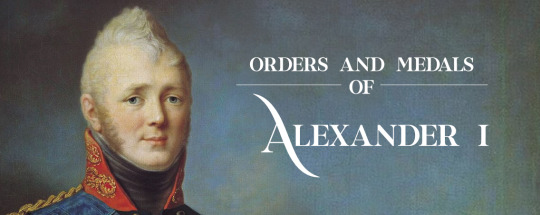


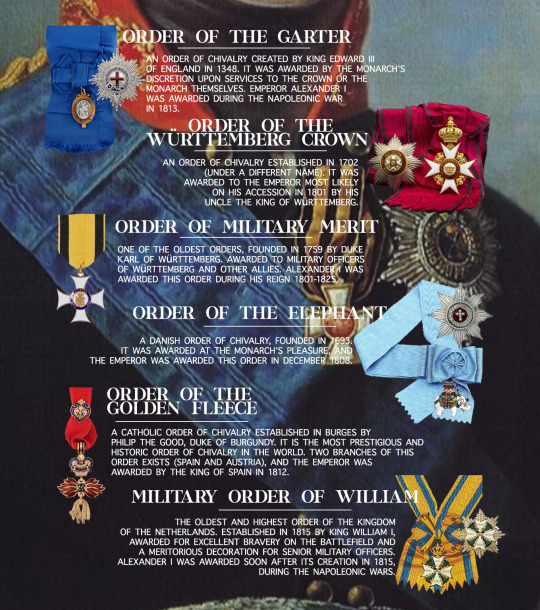


Orders and Medals → ᴇᴍᴘᴇʀᴏʀ ᴀʟᴇxᴀɴᴅᴇʀ ɪ
Emperor Alexander I of Russia, was recorded to have been a recipient of thirty awards. Eight nationals: Order of Saint Andrew, Order of Saint Alexander Nevsky, Order of Saint Anna, Order of Saint John Jerusalem, Order of the Saint George, Order of the White Eagle, Order of Saint Stanislaus, and Order of Virtuti Militari. And twenty-two foreign: Military Order of Maria Therese (Austria), Army Cross 1813/14 (Austria), Order of Saint Hubert (Bavaria), Order of Fidelity (Baden), Order of the Garter (United Kingdom), Order of the Württemberg Crown (Württemberg), Order of Military Merit (Württemberg), Order of the Elephant (Denmark), Order of the Golden Fleece (Spain), Military Order of William (The Netherlands), Order of Saint Janarius (Naples), Neapolitan Constantine Order of Saint George (Naples), Neapolitan Order of Saint Ferdinand and Merit (Naples and Sicily), Sash Order of the Three Order (Portugal), Order of Tower and Sword (Portugal), Iron Cross (Prussia), Order of the Red Eagle (Prussia), Order of the Black Eagle (Prussia), 1813 Campaign Medal (Prussia), Order of the White Falcon (Saxe-Weimar-Eisenach), Supreme Order of the Holy Annunciation (Italy), Legion of Honour (France), Order of Our Lady of Carmel and Saint Lazarus of Jerusalem (France), Order of the Holy Spirit (France), Order of Saint Louis (France), Order of Saint Seraphim (Sweden), and Order of the Sword (Sweden).
29 notes
·
View notes
Note
please do elaborate on angsty bessimu!! you are selling me on this ship very fast
also do you have sources for bessieres’ depression i’m trying to learn more about this pretty man
OMG GLADLY!!! THE MORE BESSIMU FANS THE BETTER!!! To begin with, like I've mentioned before, Murat and Bessières met by attending the same school (the exact age at which they met I am a bit confused on since according to biographies on Murat he started attending when he was 10-12 but I'm unsure when Bessi started attending, I assume around the same age but I am unsure on that due to lack of info on Bessi), I assume Murat must've been somewhat attached to Bessi given they soon afterwards went on to serve in the same guard (both of them dropped out, Murat because he wanted to, Bessi due to financial reasons), which makes their later separation in years between their early 20s and the Italian campaign even more odd to me, I'm not sure what happened, maybe Murat promised to find them better jobs after the guard they were in disbanded, maybe they had a fight, maybe Murat didn't want to leave but something happened so PRIME ANGST TERRITORY!!!!!!!!!!!! Murat managed to reunite with Bessi in Italy around 1796 after which Bessi was promoted and put under Napoleon's command, Bessi would also go on to serve in Egypt, Spain, Prussia, Russia, and Austria with Murat (those are the ones I remember for sure, so I may be missing some due to being unsure whether they were together or not). Their separation after Murat's betrayal was definitely sudden regardless of whether Bessi may have known Murat's intentions or not, we also don't know exactly how Bessi himself felt towards Murat after Murat, but I assume he presented more grief than hostility, or at least that it contributed to worsening his depression. Once again PRIME ANGST TERRITORY!!!!!!!!!!!!!!!!!!!!!!
Regarding Bessi's depression, you can find info on it in a couple of his biographies (including his surface level wiki, although there it is mostly implied), some writings from his ADCs for 1810 onwards, and some surviving letters dated from 1810 onwards. Even before the Russian campaign in Spain Bessi was already demonstrating some signs of worsening depression due to his unwillingness to cooperate with colleagues and general apathetic attitude. Bessieres seemed miserable, and the Russian campaign would only go on to worsen this due to him having to witness so much death around him, not to mention the tremendous losses suffered by France during the campaign. To make things worse, after Murat's betrayal, Bessieres, who was already carrying Bernadotte's duties, now also had to carry Murat's, this would overwhelm anyone let alone a person already described as emotionally unstable as Bessieres. From 1811 onwards, Bessieres was consistently disgraced by frequent defeats and failures. By 1813 he seemed to have been at his worse psychologically), although I don't believe he knew he was going to die nor planned his death (the way it played out at least), it was certainly suspicious he showed less commitment and went out of his way to order a great deal of his personal correspondence to be burned.
#rhodo answers#rhodo rambles#jean baptiste bessières#joachim murat#bessimu#i am ever expanding my bessimu army
20 notes
·
View notes
Text
FRIEDERIKE KRUGER // SOLDIER
“She was a soldier in the Prussian army, serving during the Napoleonic Wars in Germany from 1813 to 1815. At 23 years old, she cut off her hair, put on a male costume she designed herself and obeyed a mobilization proclamation. Owing to the speed of mobilization, there were no medical examinations and so she was not discovered at first. Her comrades admired her courage very much and were loyal to her, but during one attack her high voice caused the others to realise that she was female. However, she was not discharged from the army and was even allowed by King Frederick William III of Prussia to continue serving under her real name. She was promoted to corporal after the Battle of Mockern. She was then promoted to sergeant after the Battle of Dennewitz and subsequently fought in the Battle of Waterloo in 1815. After the end of the war, she left the army. She was awarded the Iron Cross.”

3 notes
·
View notes
Text
Monday's Photography Inspiration - Édouard Baldus
Édouard Baldus was a French photographer known for his pioneering work in architectural photography and his contributions to the documentation of French monuments and landscapes. Born on June 5, 1813, in Grünebach, Prussia (now part of Germany), Baldus moved to France in his early twenties, where he began his career as a painter and lithographer. In the 1840s, Baldus turned his attention to…

View On WordPress
#architectural photography#Black & White#Edouard Baldus#Edouard Baldus photography#inspiration#inspiration of the week#inspirational photographers#Monday inspirations#Monday Photography inspiration#Photography
2 notes
·
View notes
Text

More Than Diamonds
Pairing: Prince Friedrich x Princess! Reader
Description: Britain has gained themselves a new royalty nearing the debutante ball of 1813. Princess Amelia of Siam was sent as the new Ambassador of Siam. In Britain Princess Amelia was able to find her family, but will that be all?
After the failed courting between Daphne and prince Friedrich, it was a surprise to everyone that he stayed in London. However, Prince Friedrich is anything, but a coward. He came to Britain to find a wife and one failed courting will not chase him out of the country with a tail between his legs.
What both Amelia and Friedrich never thought to happen is, the friendship that blossomed between them and their growing feelings for one another.
Friedrich was never a coward, but he is when it comes to Amelia. Everyone said Amelia is a genius, but not when it comes to love, because she is truly lost on what to do with these butterflies in her stomach.
Tags: Slow burn, Coming of age, Time-Travel, Back to the past, Friends to Lovers, Royalties, Oblivious!FLxObvious!ML, Jealous! Friedrich, Slightly Possessive! Friedrich, Black cat gf, Golden retriever bf
Timeline: S1&S2
Meet the Main Cast of 'More Than Diamonds' 1813:
Somdet Chao Fa Amelia Chaiya Kanika

Birthday: 5th September, 1796
Age: 16 Years Old (January 1813 | S1), 17 Years Old (September 5th, 1813 & S2) (Current)
Zodiac: Virgo
Relationship:
Rama II & Lady Felicia of Gloucester (Parents)
Prince William Henry & Abigail Bridgerton (Grandparents)
Daniel & Rama III (Older Brothers)
Residence: Bangkok (Main) | London (Current)
Education: Home schooled (Current)
Face Claim: Lalisa Manoban
Pimchanok Davika Yontararak

Birthday: 20th September, 1990
Age: 31 Years Old (Past)
Zodiac: Virgo
Relationship:
Nipon Yontararak (Mother)
Anada Yontararak (Father)
Residence: Bangkok (Main | Past), California (Past), Massachusetts (Past) & New York (Past)
Education:
Caltech (BA: Mathematics & Chemistry, PhD: Chemistry)
M.I.T (PhD: Mathematics)
Harvard University (BA: International Relation & Law, MPA: Public Administration & M.L: Law)
Face Claim: Baifern Pimchanok
Friedrich Wilhelm Ludwig

Birthday: 30 October, 1794
Age: 19 years old
Zodiac: Scorpio
Relationship:
Prince Louis Charles of Prussia (Father)
Frederica of Mcklenburg-Strelitz (Mother)
Residence: London (Currently) | Berlin (Main)
Face Claim: Freddie Stroma
Chao Khun Phra Felicia

Birthday: April 1, 1770
Age: 43 Years Old
Zodiac: Aries
Relationship:
Rama II (Husband)
Amelia (Daughter)
Daniel (Son)
Residence: Bangkok
Education: Home schooled
Face Claim: Leighton Meester
Phra Phutthaloetla Naphalai (Rama II/Chim)

Birthday: 24 February, 1767
Age: 49 Years Old
Zodiac: Pisces
Relationship:
Rama I (Father)
Amarinda (Mother)
Felicia (Wife)
Thap, Daniel, Mongkut (Son)
Apsara (Daughter)
Residence: Bangkok
Education: Royal Institution of Instruction
Face Claim: Henry Golding
Prince William Henry (Duke of Gloucester and Edinburgh)

Birthday: 1744
Age: 70 Years Old (1813)
Relationship:
Abigail Bridgerton (Wife)
King George III (Brother)
Charlotte of Mecklenburg-Strelitz (Sister-in-Law)
The Bridgerton Family (In-Laws)
Residence: Raglan Castle, Monmouthshire in South East Wales
Education: Eton
Face Claim: Daniel Day Lewis
Abigail Bridgerton
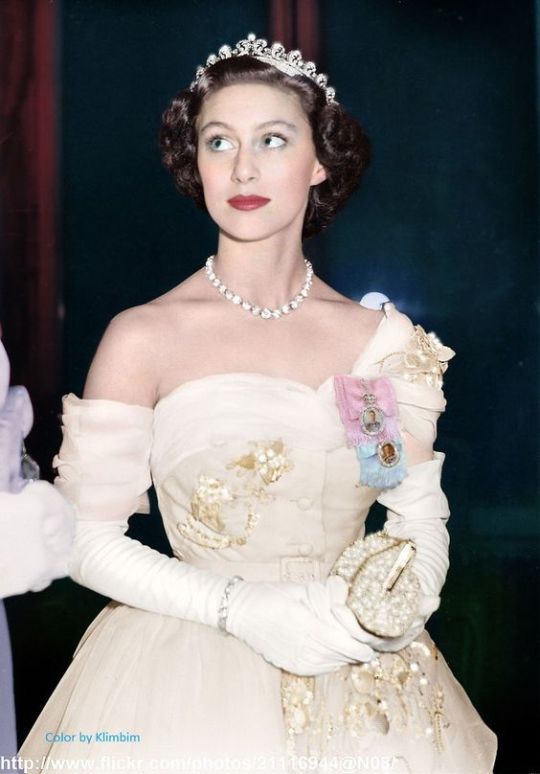
Birthday: 1750
Age: 63 Years old (1813)
Relationship:
The Bridgerton Family
William Henry (Husband)
King George III (Brother-in-Law)
Charlotte of Mecklenburg-Strelitz (Sister-in-Law)
Residence: Gloucester House
Education: Homeschooled
Face Claim: Princess Margaret
Amara Busarakham Yontarak (Lynn)

Birthday: 8 August, 1785
Age: 30 Years Old
Zodiac: Leo
Residence: Bangkok
Education: Home Schooled
Face Claim: Minnie G-IDLE
Channarong Aran Lamon (Hugo)

Birthday: 8 February, 1780
Age: 33 Years Old
Zodiac: Aquarius
Residence: Bangkok
Education: Royal Institution of Instruction
Face Claim: Luke Ishikawa
More Than Diamond's Master List
IMPORTANT NOTES
A/N: Hello, how are you guys? I hope you are well. Regarding this story that is following Julia Quinn's hit series, Bridgerton, I would start by saying I read the book first before I watch the Netflix series, thus I apologize if there are some differences with the Netflix version, but I will try to make it as similar as possible.
I would also ask the readers to be kind when criticizing this story as this is my first time to actually publishing my work in the open.
For the story, as you can see there is a time-travel tag. Our reader was sent back to the past with all the knowledge from the future. If you are also confused with Davika's education, I actually based her using Spencer Reid, a character from Criminal Minds.
If you are not interested or felt like those 2 themes ruined a historical romance story, then please do not leave any bad comments as you can just stop reading this story.
Thank You Very Much!
Much Love,
Cinnamon Meilleure's Writing Room
Edited: 29 March, 2024
#bridgerton#prince friedrich#lisa#lalisa#thailand#prussia#writing prompt#historical romance#history#romance#friedrich of prussia#freddie stroma#queen charlotte#daphne bridgerton#simon basset#anthony bridgerton#kate sharma#time travel#back to the past#historical#regency era#prince frederick
21 notes
·
View notes